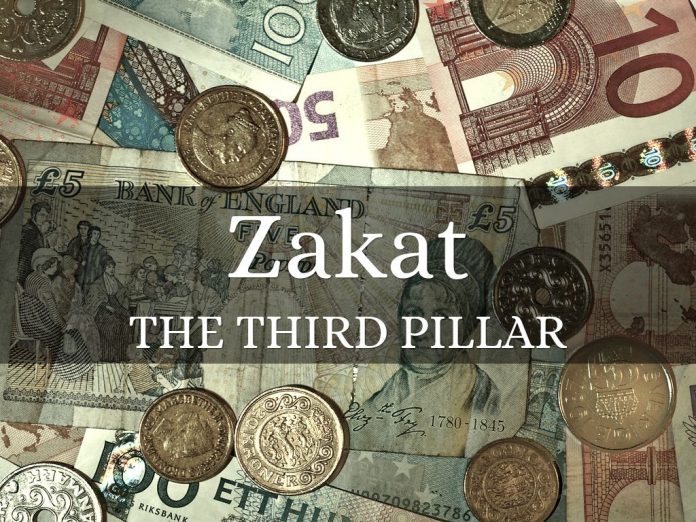By Dr Syed Zafar Mahmood, TwoCircles.net
‘Zakat’ is one of the five basic pillars of human faith in the Creator. Etymologically it means purification. That is to say, annually donating for the poor and needy fortieth portion of one’s wealth keeps the remaining 97.5 percent purified and blessed for the possessor. Thus, Zakat spiritualizes philanthropy and works as an instrument to implement the larger divine mandate of keeping the wealth circulated across the society. This phenomenal mechanism has prompted even the United Nations to tap this resource in the context of achieving its SDGs.
Among the five pillars, Zakat has an exclusive status that, unlike the other four, its cycle of compliance is not confined to exclusive spiritual interaction between the human being and God. Rather, in this strand of worship, there is a third entity who is the recipient of the charity – be it an individual, a group or society as a whole. Hence, understandably, organized collection and institutionalized utilization of Zakat is canonically preferred over stray disbursement. That also helps to safeguard the privacy of both the donor and the beneficiary.
However, for half a century after India’s Independence, a civil society effort at the national level to streamline Zakat remained conspicuous by its absence. It was in 1997 that a group of selfless philanthropists got together in Delhi and established Zakat Foundation of India (ZFI) which was registered in 2001 under Indian Trust Act and, respectively in 2002 and 2004, under Income Tax Act (Sec 12A & 80G) and FCRA. The Foundation is hailed, inter alia, for timely governmental compliances.
Such five decades long national absence of Zakat effort (1947-1997) had exposed its unorganized array to localized vagaries artificially limiting its actual scriptural expanse often to constricted understanding. Consequently, the masses did not benefit fully with the well known provision of ‘universal consensus’ (Ijma). ZFI’s scholarly, deliberative pursuits through regional & national Zakat conferences, its consultative participation at international levels and sharing these proceedings through its articles published in dailies and journals and through TV programs has thankfully helped widen the Zakat horizon in India.
Contextually, ZFI’s works can be vertically categorized under micro and macro. The micro projects include orphanages, day care centers, medical centers, tailoring institutes for girls, monthly distribution of uncooked food items among widows, girls’ marriage, students’ educational help, disaster relief, supporting the artisans, etc.
During the COVID-19 pandemic ZFI has also been helping the adversely affected families.
In its macro domain, ZFI systematically selects the most meritorious girls and boys of the deprived sections of society and facilitates for them professional coaching to well prepare for competitive examinations conducted by the central & state government agencies and the high court’s for filling up vacancies at various levels in the executive and the judiciary. Besides, ZFI identifies those electoral constituencies and wards where Delimitation law and rules have not been followed and takes up the fault-lines with the jurisdictional election authorities and, wherever needed, approaches the high court’s seeking rectification. Also, ZFI studies the welfare schemes launched by the central & state governments and lobbies for the removal of bottlenecks & improvement in their implementation.
That way, ZFI has an impeccable record of rendering benevolent service to the fellow citizenry entirely within the constitutional framework and complying with all the laws, rules and regulations while cherishing the statutory ideals enunciated by Mahatma Gandhi, Dr B.R. Ambedkar and other constitution makers.
However, human society is, at times, made to face uninvited and uncalled for negativity sprouting from unethical tendencies of an individual or a group rooted in self-serving, perverted interpretation of democracy. After more than twenty peaceful years of its egalitarian pursuits, ZFI too had to have its share of such challenges. But, in nature there is no scope for an alternative to truth and if someone tries to manufacture any such devious facade angels descend to turn fire into a cool garden, insulating Abraham from the Nimrod.
Such divine bounty descended at ZFI too. During its two decades of work ninety nine percent of donations have been received through banking channels, more than ninety percent receipts are from within India, each donation including from abroad is fully documented and annually reported to the union home ministry’s FCRA division which has never expressed anything adverse against any ZFI donor during the last fifteen years of such compliance. Annual returns are furnished also to the Income Tax Department which too has always found these in order during the last eighteen years. Both the departments have been repeatedly going through ZFI’s affairs and renewing statutory registrations every five years and these are continuing till date.
Nonetheless, the diabolical forces decided that in order to carry forward their given sadistic agenda of aiming at a targeted section of Indian citizens it would, this time, use the platform of ZFI. But the descending angels’ sway turned out to be more than a match for them. And, as a consolation prize, ZFI is heading towards wider outreach and warmer acceptance, redoubling its enthusiasm and determination; additional projects have been launched for humanitarian services.
Dr Syed Zafar Mahmood is President, Zakat Foundation of India zakatindia.org

